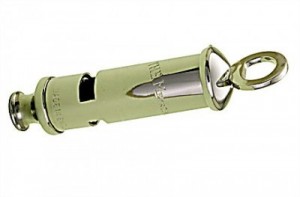A potential Medicare fraud whistleblower client called yesterday. Like many would-be whistleblowers, she had concerns about what might happen if her claim failed.
Congress has passed strong whistleblower anti-retaliation laws and the courts are quick to step in and enforce those laws if an employer retaliates against someone for reporting fraud. Her question was a bit different, however. She wanted to know if she could be in trouble with the court if her case “lost”.
It’s natural for whistleblowers to be anxious about the decision to step forward and file a lawsuit. Although stopping fraud is certainly important and the potential monetary awards are high, it is still a big step.
Unfortunately, not every good case wins. I would like to say that the “good guys” win every case. We know that isn’t true, however. Sometimes cases are dismissed because the whistleblower was missing a crucial fact or detail. Sometimes defendants slither away scot free because of technicality. It happens.
Except in extreme cases, courts won’t punish a whistleblower for bringing a case that ultimately fails.
The federal court rules say that a litigant (someone filing a lawsuit such as a whistleblower) and his or her lawyer can be held responsible for filing a frivolous or unsupported claim.
Most judges are reluctant to impose sanctions unless truly warranted. Many judges will also warn the parties and provide an opportunity to remedy any problems before imposing sanctions. This is especially true in whistleblower cases. Judges know that no one would come forward to report fraud if they had to worry about being sanctioned for making a mistake.
There is a fair amount of “urban legend” that companies will seek sanctions against employees who file claims against their employer. While some evil companies do make such threats, judges ignore them. In fact, some judges will use the same frivolous pleading rules and sanction the company’s lawyers that improperly threaten sanctions!
If you are like me, having an example is helpful. Below is the most recent case that discusses imposing sanctions against a whistleblower. These case are quite rare. After reading this post, hopefully you won’t be worried.
Lambda Research is an Ohio company that does work for the U.S. Navy. After several terrible crashes of Harrier jets, the Navy began working with Lambda to reduce metal fatigue in certain of its jet aircraft. Lambda hired Terry Jacobs, an engineer, to work on the project.
Jacobs stayed for a couple years and then took a job with a German competitor of Lambda. Apparently not content with a promotion and new job, Jacobs contacted the Navy and tried to convince them to drop Lambda and hire his new company. He also tried to invalidate one of Lambda’s patents.
Lambda sued Jacobs for stealing trade secrets and won. The company was awarded a $9.4 million judgment. Jacobs filed a False Claim Act whistleblower suit on behalf of the U.S. government and claimed that his former employer had defrauded the Navy.
Given the timing of the two suits, the judge hearing the whistleblower suit warned Jacobs and his attorney that he would impose sanctions that if they had no evidence to back up their claims. In the words of the trial judge, “If you are using this [lawsuit] to vent some spleen against these folks, you’re going to end up getting sanctioned.”
Not satisfied that the case had true merit, the judge gave a second warning to the parties and said, “If it turns out that [this case] is frivolous or as soon as you discover that it is frivolous or without merit . . . you should dismiss it.” In other words, he gave Jacobs the opportunity to dismiss his case and walk away.
Later the judge would issue a third warning. Those warnings were unheeded.
Ultimately, the court tossed the case. The judge then found that Jacobs failed to submit any credible evidence supporting his claims.
In tossing the suit, the judge imposed sanctions on Jacobs and his lawyer.
Still not satisfied, Jacobs appealed to the U.S. Court of Appeals, which dismissed his appeal last month. In so ruling, they ordered Jacobs to “show cause” why he should not be further sanctioned for filing a frivolous appeal.
Whether by a company or a whistleblower, filing a frivolous lawsuit undermines the legal process. Usually we see defendants in Medicare fraud cases retaliating against their former employees. Sometimes that retaliation includes the filing of a frivolous lawsuit claiming that the employee breached a confidentiality agreement or stole secrets. Sometimes the defendants threaten to seek sanctions.
Rarely should the whistleblower worry. As this case points out, however, sometimes whistleblowers can be sanctioned.
The bottom line? If you have evidence of Medicare fraud or other wrongdoing against the government or government program, don’t worry about sanctions. Unless you lie or use the courts to wage your own vendetta, there is little fear of sanctions. A court won’t sanction you for making a mistake but could sanction you for lying.
—
Think you have information about Medicare or Medicaid fraud? Our whistleblower clients have recovered over $100 million in whistleblower awards. To qualify, you must have inside information about fraud involving a government program. Obtaining an award means filing a lawsuit. Lawyers typically charge a contingent fee meaning you don’t pay unless you receive a recovery. Typical recoveries are 15% of whatever the government receives. Awards can be higher.
For more information, contact attorney Brian Mahany at or by telephone at . All inquiries are kept strictly confidential and protected by the attorney – client privilege.
MahanyLaw – America’s Whistleblower Lawyers.


